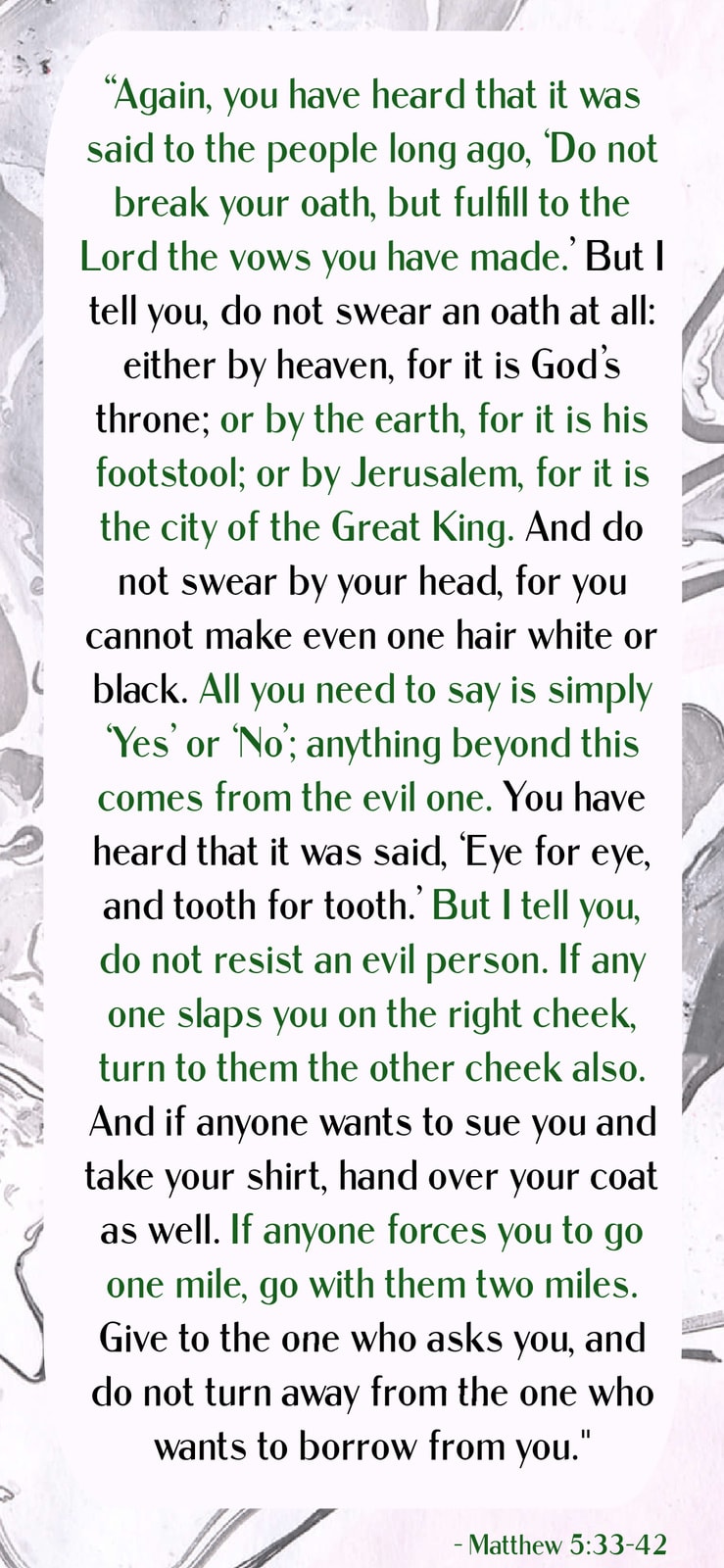My peers and I are in a season of heavy, explicit instruction with our children. Sometimes this instruction can go hilariously wrong, as was the case recently with a friend of mine whose kids are 3 and 5. Her children were playing well together one afternoon when my friend heard desperate squeals from across the house. She ran into the playroom to find her son and daughter in tears, each child the obvious victim of the other sibling’s aggression.
After confirming that no permanent physical damage had been done, my friend sat the older child down to ask what had happened. “He hit me!” said the daughter. “And, well, I remembered how you’ve been teaching me about the Golden Rule, how we are supposed to treat others the way they treat us. So when he hit me, I used the Golden Rule and hit him back.”

I have no doubt their family will be laughing about that story for years to come. . . once they’ve had a few more lessons on how to actually practice the Golden Rule.
It’s a funny story because we can clearly see how a simple lesson was so easily misconstrued. It’s cute when a five-year-old makes a mistake like this, less so when it’s an adult. But how often do we misinterpret God’s messages for us? He’s laid them out as succinctly as He can, and we either ignore His precepts or misunderstand them, mistakenly adhering to the letter of the law while bypassing its intent, OR blatantly disregarding His rules because we think we know better.
A large portion of the Sermon on the Mount is about Jesus clarifying His Father’s original messages. Jesus acknowledges what His audience knows (or thinks they know) about God’s will and His Law, then highlights where messages have gotten a little lost in translation. Then He outlines a new way to move forward, one with clearer guidelines and (in most instances) higher standards.

In the passage from the Sermon I’m focusing on this month, Jesus sheds light on two main concepts. The first has to do with oaths, the act of invoking God’s name to guarantee the truth of one’s statements. Jesus tells His disciples that this is altogether unnecessary: our character should be of such high integrity that our words will be believed without the need for an oath. Any form of swearing is not just unnecessary, it waters down the value of our statements. Backing up a statement with extra oaths is akin to wrapping a diamond ring in gaudy wrapping paper, or smothering perfectly ripened strawberries with artificial sweetener: it overshadows and ultimately detracts from the message. Our words must stand on their own, allowing their truth to do its work of our sanctification.
The second concept addressed in this passage from the Sermon is retaliation. This is one of the hardest concepts of the Bible for us to hear, let alone practice: as image bearers, we contain within us a sense of fairness and justice—and we take it upon ourselves to enact this justice every time it skews against us. We get even, retaliating (and celebrating others who do the same). It feels good to get back at those who have harmed us, and we are quick to justify actions done in the name of fairness. But this is directly antithetical to what Jesus has asked us to do. It’s countercultural and counterintuitive, but we are not to respond to personal injustice in kind. Instead, we are given the noble calling of doing the opposite of what feels right, repaying evil with kindness, hatred with love, violence with peace, greed with selflessness.

Jesus modeled these revolutionary concepts with perfection. He set the new standard and then embodied it like only God could. We will not measure up to His example . . . but we are called to try.
Lord Jesus, help me as I seek to adhere to your holy calling: to speak words that need no caveats or extra emphasis, because my words and my life exemplify integrity. To counteract harm done against me with graciousness, humility, and generosity. I thank you for loving us enough to set out clear guidelines for lives that will honor you.